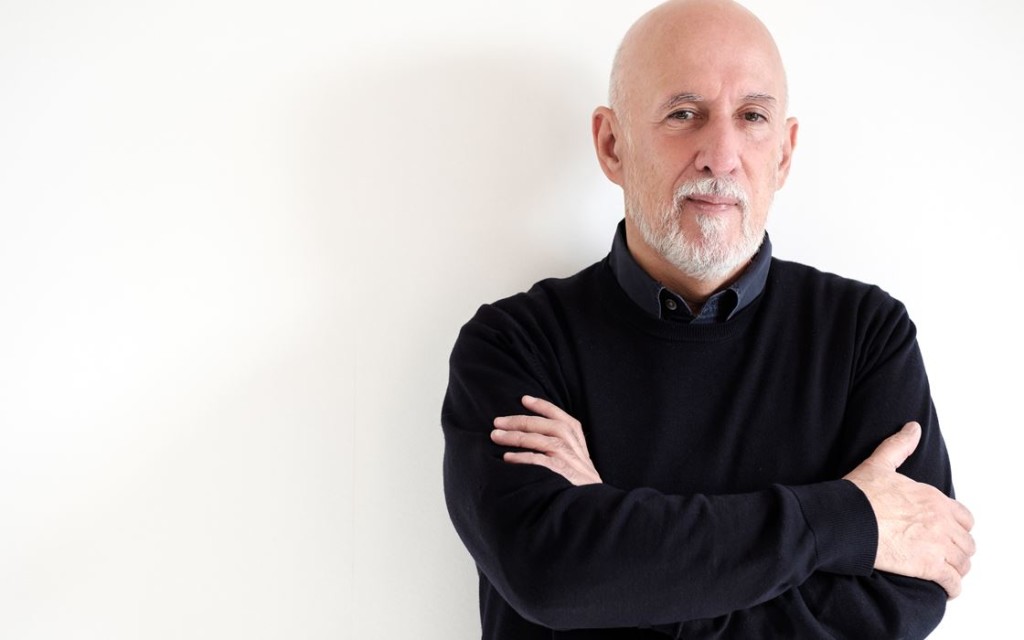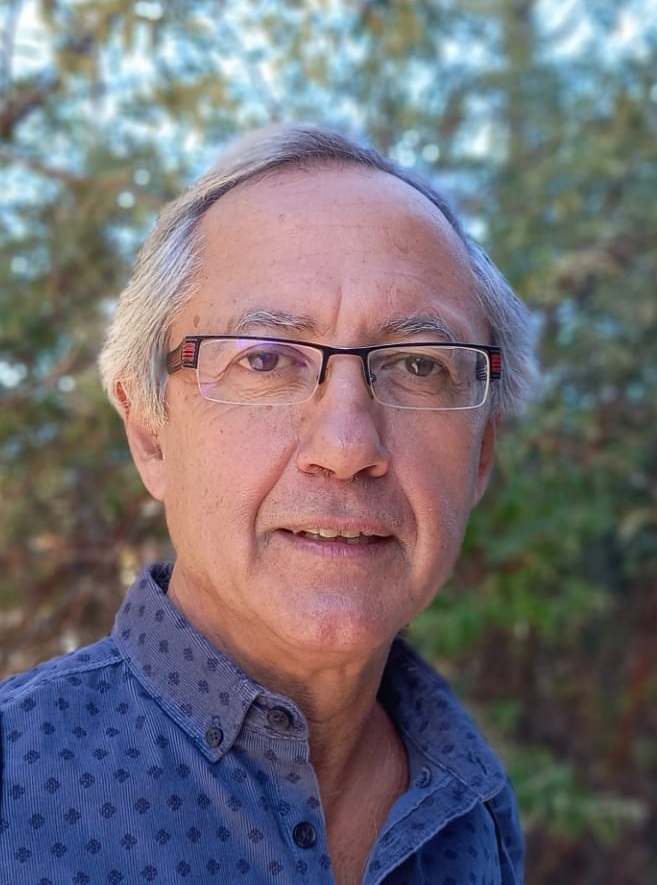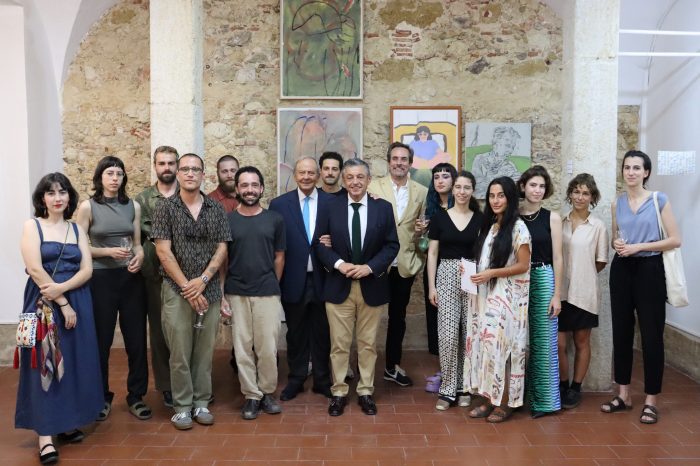A conversation with Arch. Carrilho da Graça

A conversation with Arch. Carrilho da Graça
‘Architects are always trying to communicate, in a perfect way, what they think (...) I cannot say that there is one that is‘ the’ work. I am always trying to achieve perfection.'
I have read on a blog, that ‘perhaps the greatest compliment that can be given to João Luis Carrilho da Graça is to recognize, in his most recent projects, a refusal to submit to a corset of style or language’. Do you agree with this statement?
I think that any architect probably thinks that he is not subjected to the corset of a style, although, in reality, we find that there are many recurrences, situations that end up happening repeatedly. But just a short time ago, a colleague of mine, Antonio Jiménez Torrecillas, said that ‘when deciding on the construction system, a large part of the decisions are already made in relation to the project’. And a Spanish poet said that ‘when one uses rice, milk and sugar, on always gets rice pudding’. This means that there are certain assumptions, in the way things are built, and that we make natural decisions, which we do not even think about, that are related to construction traditions and the building systems that we adopt the most. I always look for simplicity. The ideal is to be able to build in a relatively simple way, even if it is sophisticated. The idea is that the results give more importance to the life they will support rather than to the aspects of their construction.
Does your architecture “drink” more from the space where you will be inserted or from the experiences that have marked you throughout your life?
I pay close attention to the space where the buildings are located. The relationship with the sites is very important because it gives the buildings their unique character. One of the things that differentiates buildings from other production systems is precisely that. Each site is different and, when responding to a particular site, we are doing a unique project and that aspect is very interesting. This is not to say that you cannot make projects that work well anywhere, but it is more interesting to explore the specific character of a specific situation. But I also design according to the experiences I have had. Since I started thinking about being an architect that I visit architectural works, I have always been looking at buildings, walls, details, spaces… and I try to understand what I like more or less.
Do you see yourself in a social role of architecture?
Of course. I think that architecture differs from artistic activities precisely because of that. Design exists to solve problems: we need or want to improve an object, or respond to any need, and we design the object. Architecture is the same thing, it always answers questions that, even if they are very private, such as a private house, always have a presence in the public space, so architecture always has a social responsibility, it always has to respond to society as a whole.
You were the second Portuguese architect to be distinguished with the Prémio Pessoa and have also received a Prémio Valmor, among others. What do the awards say about your work?
They say a lot. The Prémio Pessoa was very rewarding because it is composed of a jury that represents many sectors of culture and society, and that corresponds to a recognition that goes beyond the scope of architecture. We really enjoyed being recognized by our peers, but I was very happy and touched by the Prémio Pessoa for that reason, because I understood that there was a general recognition of what I had done. It is an incentive for us to continue working and fighting for our ideas.
Are there marked differences between your projects in Portugal and in other countries?
Perhaps. The systems and habits, even in Europe, are very different. In France, for example, the administration has an organization quite different from ours. In the case of Theatre Poitier, there were 35 contractors at the same time in the work. In Portugal there is a general contractor who subcontracts other contractors for the various specialties. In France, that coordination was ours. It was a completely different work context that posed some difficulties because we were not used to it. The situations are always very different but we have to look for environments that are close to what we want to do in order to feel good. Siza Vieira once said that ‘today we have to look for the places where our architecture is wanted.’
For you, Africa is one of those places?
I have a huge fascination for the African continent. I think it has extraordinary potential. When we think of Africa, we think of a continent where misery and corruption prevail; however, if we look at Africa as a single territory, it has the largest gross domestic product per capita, so it is a very rich, beautiful territory. We are a little confused by the difficulty we have in interacting with those social and political realities. I would really enjoy to do things in Africa.
Do you have references in architecture?
I have many. Recently I have been revisiting the USA. I accompanied Arch. Souto Moura when he received the Pritzker Prize and we made a trip throughout the USA. We were reviewing the works of Mies van der Rohe that are impressive, of Corbusier who did almost everything that was possible to do in the modern movement. I have many references and many of them contemporary.
Have you designed your life’s work?
I don’t think so. Regarding the writers it is said that they always write the same book about different things. It is also a bit like this with architects: they are always trying to communicate, in a perfect way, what they think, in all the projects they are facing. I have a feeling that there are works that I like very much for one reason, others for another, others do not please me… There is a wide range of feelings. I cannot say that there is one that is ‘the’ work. Fortunately. I don’t even think I’ll ever achieve that, I’m always trying to be perfect.
This interview is part of the Artes & Letras Magazine # 23, September 2011
Partially automatic translation from portuguese: some expressions may differ from their actual meaning.
News & Interviews
A conversation with Arch. Luís Cabral
‘Architecture that designs buildings can enclosure an environment without external factors, with lighting and air conditioning. Outside, you need to deeply understand the signs of the landscape. ' Read more
A conversation with the artists of the Painting Exhibition
The goal of the art show organized by Betar was to contribute to the dissemination of the work of 15 young artists to whom we asked: How did art appear in your life? What does it mean? What inspires you? How do you describe your work? How do time and place influence your work? What did you think of the Betar initiative? Is it difficult to promote the work in Portugal? Read more
A conversation with Arch. Alexandre Marques Pereira
‘As the world gets richer, so does our work. The language must be contemporary and the references adapted without complexes. ’ Read more




